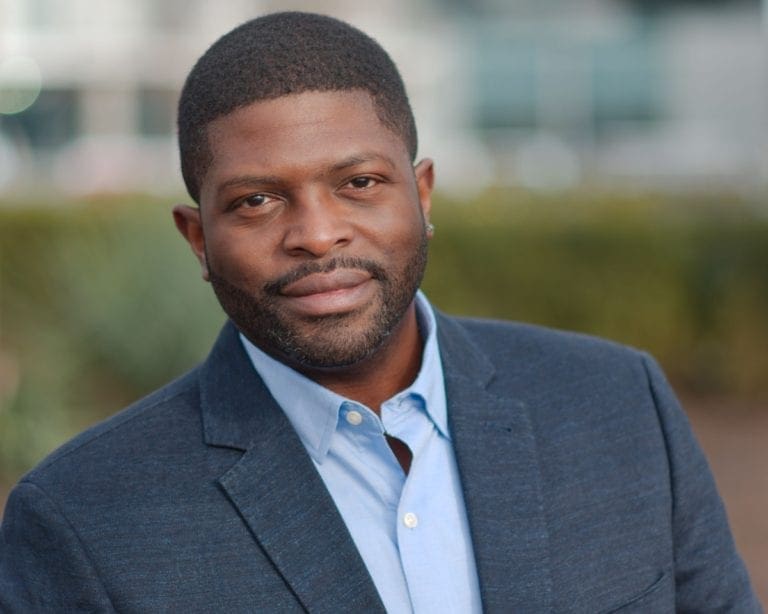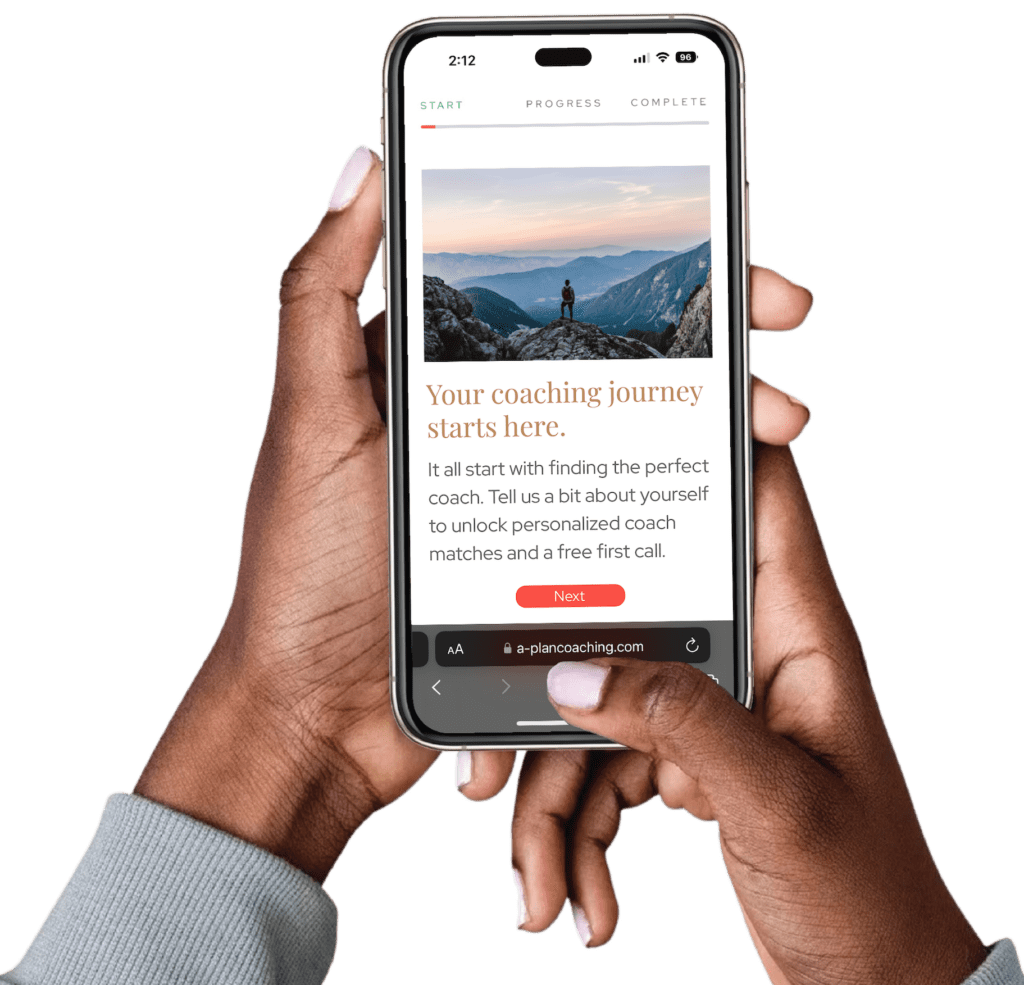As a leader of an organization, what strategies or resources do you leverage to develop your executive communication skills? For those at the top, few things are more important than clear communication. That’s exactly why so many of today’s organizations have turned to executive communication coaching to help their leaders consistently do their jobs better.
While communication is typically just one of many areas of focus in a coaching engagement, there are times, particularly for executives, when it takes center stage. In this article, learn the definition of an executive communication coach and the skills you’ll develop by working with one.
Jump to section…

Defining Executive Communication Coaching
Executive communication coaching is a type of coaching designed to help leaders maximize their executive presence, interpersonal skills, and overall effectiveness. With an executive communication coach by their side, leaders gain a dedicated space to plan and practice key parts of the job related to communication—from delegation, to communicating vision, to giving and receiving feedback, and more.
At a)plan, all our coaches have experience with both executive-level leaders and communication development. These are common areas of focus within the larger scope of whole-person coaching, the concept that coaching is most impactful when all areas of a person’s life are considered. To that end, all of our coaches can and have served as C-suite coaches and executive communication coaches when their clients have needed leadership support.
Who Should Hire an Executive Communication Coach?
For the leader considering hiring a coach, the first step is to trust that any skill (or skill deficiency) can be improved by setting an intention, forming new habits, and creating an accountability system. These key pillars enable any personal transformation or development—and they’re the core focus of any coaching engagement.
An executive communication coach can bring value to even the most seasoned leaders and communicators. For that reason, every executive should at least consider coaching. In the next section, you’ll find a list of some of the most common skills that executive leaders improve through coaching. While the list is not exhaustive, it will give you an idea if your own aspirations are well suited for executive communication coaching.
5 Skills You’ll Develop with Executive Communication Coaching
Here are some of the most common ways in which coaching can help you improve your executive communications skills—and your entire organization by way of ripple effect.
1. Communicating Your Vision
Developing and communicating vision is a key focus for an executive leader. For many, the communication part of that equation presents the biggest challenge. It’s not enough to simply state your vision and carry on. Vision must inspire enough so that it becomes very clear to the entire organization and secures collective buy-in.
A great coach serves as a valuable thought partner and sounding board for any leader trying to clarify their vision. Coaching sessions also present opportunities to practice communicating and roleplaying the presentation of that vision and getting feedback on its effectiveness.
2. Communicating Role Clarity
In a high-functioning organization, leaders, managers, and individual contributors know exactly who owns what. Without well-communicated role clarity, organizations are prone to dysfunction and inefficiencies as teams fail to move as a cohesive unit. The responsibility of role clarity falls on the organization’s managers, directors, and executives. If you manage people, anticipate your organization’s need for role clarity, particularly as the organization grows.
At a)plan, our coaches are well versed in a number of role clarity tools, one of which is the MOCHA framework. With MOCHA, leaders gain a great tool to identify the manager(s), owner(s), consultant(s), helper(s), and approver(s) of any project or initiative. When used effectively, tools like MOCHA lay the groundwork for executives to successfully communicate role clarity.
3. Delegating and Making Clear Requests
Successful leaders know when and how to delegate work to others. But delegation is more of a skill than many realize, and a coach can be an invaluable resource for any leader trying to do it well.
A great delegator first understands that not all delegation contexts are equal. For example, a request differs from a requirement which differs from a recommendation. Specificity in communication when assigning work to a colleague may make all the difference in whether or not that task gets completed and the extent to which it is completed on time and with care.
4. Giving and Receiving Feedback
Research published by Harvard Business Review on the ideal “praise-to-criticism ratio” revealed that the highest performing teams give five bits of positive feedback for every one bit of constructive feedback (over the course of the entire relationship, not in one sitting). This balance highlights the importance of intentionality when it comes to giving feedback to your direct reports.
To work on that intentionality, coaching offers a space to improve your communication abilities, understanding that both positive and constructive feedback helps motivate your team. Coaching is also a resource to manage your ability to internalize incoming feedback in healthy ways. No person in an organization is immune to constructive feedback. As a leader, your response and attitude in those situations is critical for building organizational trust and psychological safety.
5. Leading an Organization Through Change
Whenever an organization embarks on some kind of significant change, employees look to their leaders to better understand what’s going on. Common questions during any moment of change management include: Why is there a need for this change? What’s going to be different? How will this change impact employees in ways good or bad?
Every leader will face moments where they must be able to communicate through change management. Whether it be a reorganization, a shift to remote work, or the adoption of new tools and technology, change is par for the course in today’s workplace. Once again, coaching is a resource designed to help executives show up as the leaders they need to be for themselves, their teams, and their companies in these situations.
Executive Communication Coaches at a)plan
At a)plan coaching, we have carefully vetted and crafted a roster of 50-plus coaches, all of whom have extensive experience as coaches and a wide diversity of backgrounds. Through our engagements with organizations, our coaches have served as executive communication coaches for highly respected companies, including Autodesk, Google, Metlife, Stripe, and more.
Below is a sampling of our coaches who have worked closely with executives to help them with a wide range of focuses—from productivity, to communication, to executive presence, and more. Our goal isn’t to be the biggest coaching provider, but rather the best, and that commitment is reflected in the quality of our coaching talent.

The real power in executive coaching is allowing you, the client, to understand and unlock all of your potential as a leader, communicator, and collaborator.
Walter Crawford
Walter’s profile >

When leaders are fully themselves in the world and the workplace, they can do amazing things and have a hugely positive impact on others in their lives.
Natalie Bybee
Natalie’s profile >

I help executives lead by example and take ownership by holding them accountable to the bespoke goals and actions that drive their coaching experience.
Collin Baja
Collin’s profile >
Custom-Match with an Executive Communication Coach
To work with seasoned coaches like Walter, Natalie, and Collin—who specialize in executive communication and development—start by taking our coach matching survey to receive personalized coach matches (or select the coach with whom you’d like to work when you reach that question in the survey). And to learn more about coaching for your organization and/or executive team, let us know a bit more about your situation here.

Looking for an executive communication coach? Our free coach-matching tool helps you find the perfect coach in minutes.
